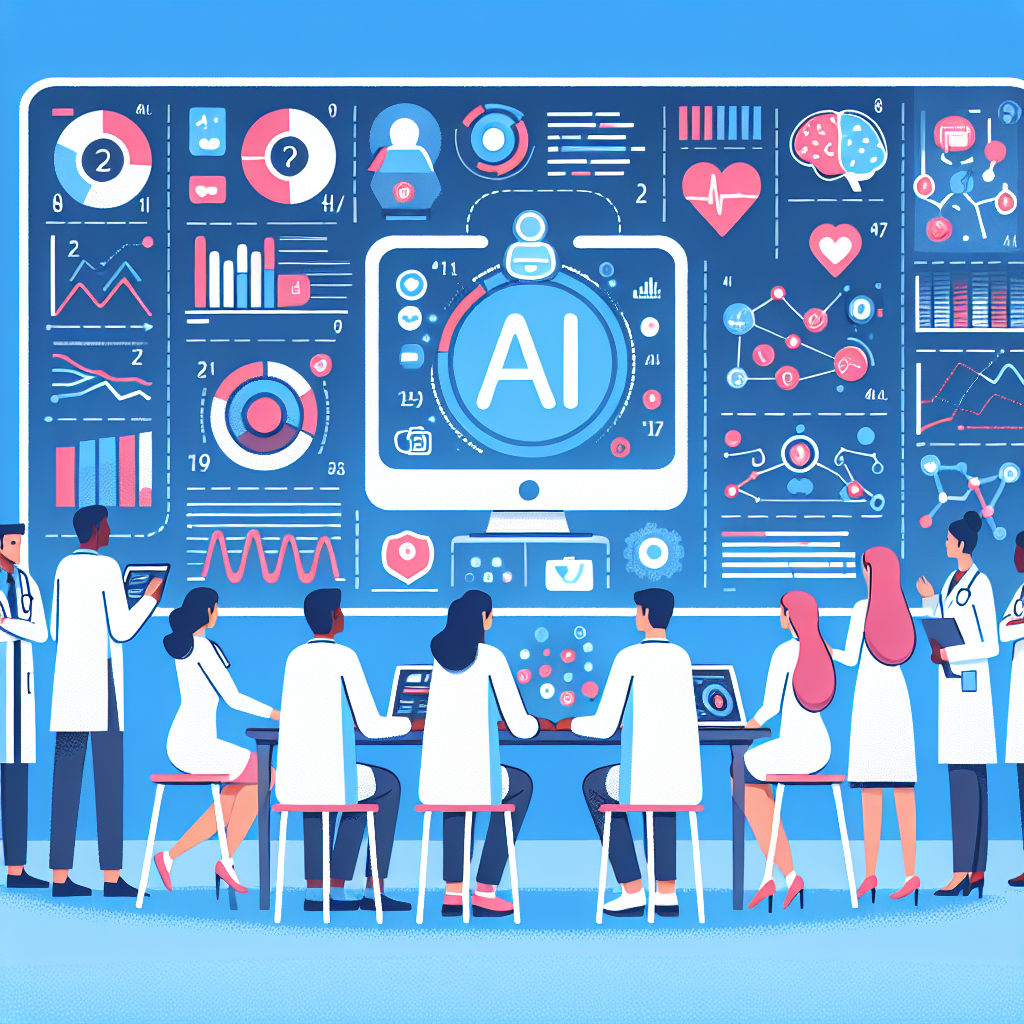Artificial Intelligence (AI) has been revolutionizing many industries, and healthcare is no exception. One area where AI is making a significant impact is in improving healthcare outcomes measurement. By utilizing AI technology, healthcare providers can gather and analyze data more efficiently and accurately, leading to better patient outcomes and more effective treatment plans.
One of the key ways AI is improving healthcare outcomes measurement is through predictive analytics. AI can analyze large amounts of data from various sources, including electronic health records, lab results, and patient demographics, to predict which patients are at higher risk for certain diseases or health complications. This allows healthcare providers to intervene earlier and provide targeted interventions to prevent adverse outcomes.
Additionally, AI can help healthcare providers identify patterns and trends in patient data that may not be immediately apparent to human analysts. By using machine learning algorithms, AI can sift through vast amounts of data to identify correlations and relationships that can help healthcare providers make more informed decisions about patient care.
Another way AI is enhancing healthcare outcomes measurement is by improving the accuracy of diagnoses. AI-powered diagnostic tools can analyze medical images, such as X-rays and MRIs, with a level of accuracy that rivals or even surpasses that of human radiologists. This can lead to faster and more accurate diagnoses, allowing patients to receive treatment sooner and potentially improving their outcomes.
Furthermore, AI can assist healthcare providers in developing personalized treatment plans for patients. By analyzing a patient’s genetic makeup, medical history, and other relevant data, AI can help healthcare providers tailor treatment plans to each individual’s unique needs. This can lead to more effective treatments and improved outcomes for patients.
In addition to improving patient care, AI is also helping healthcare organizations measure and improve their own performance. By analyzing data on patient outcomes, readmission rates, and other key metrics, healthcare providers can identify areas for improvement and implement targeted interventions to enhance the quality of care they provide.
Overall, AI is playing a crucial role in transforming healthcare outcomes measurement and improving patient care. By harnessing the power of AI technology, healthcare providers can gather and analyze data more effectively, leading to better outcomes for patients and more efficient healthcare delivery.
FAQs:
Q: How does AI improve healthcare outcomes measurement?
A: AI can analyze large amounts of data to predict which patients are at higher risk for certain diseases, identify patterns and trends in patient data, improve the accuracy of diagnoses, and develop personalized treatment plans for patients.
Q: Can AI help healthcare providers measure and improve their own performance?
A: Yes, AI can analyze data on patient outcomes, readmission rates, and other key metrics to help healthcare providers identify areas for improvement and implement targeted interventions to enhance the quality of care they provide.
Q: Are there any potential drawbacks to using AI in healthcare outcomes measurement?
A: While AI offers many benefits, there are potential drawbacks to consider, such as concerns about data privacy and security, the need for ongoing training and education for healthcare providers, and the potential for bias in AI algorithms.
Q: How can healthcare organizations implement AI technology to improve outcomes measurement?
A: Healthcare organizations can implement AI technology by investing in AI-powered tools and platforms, training staff on how to use AI technology effectively, and collaborating with AI experts to develop custom solutions for their specific needs.

